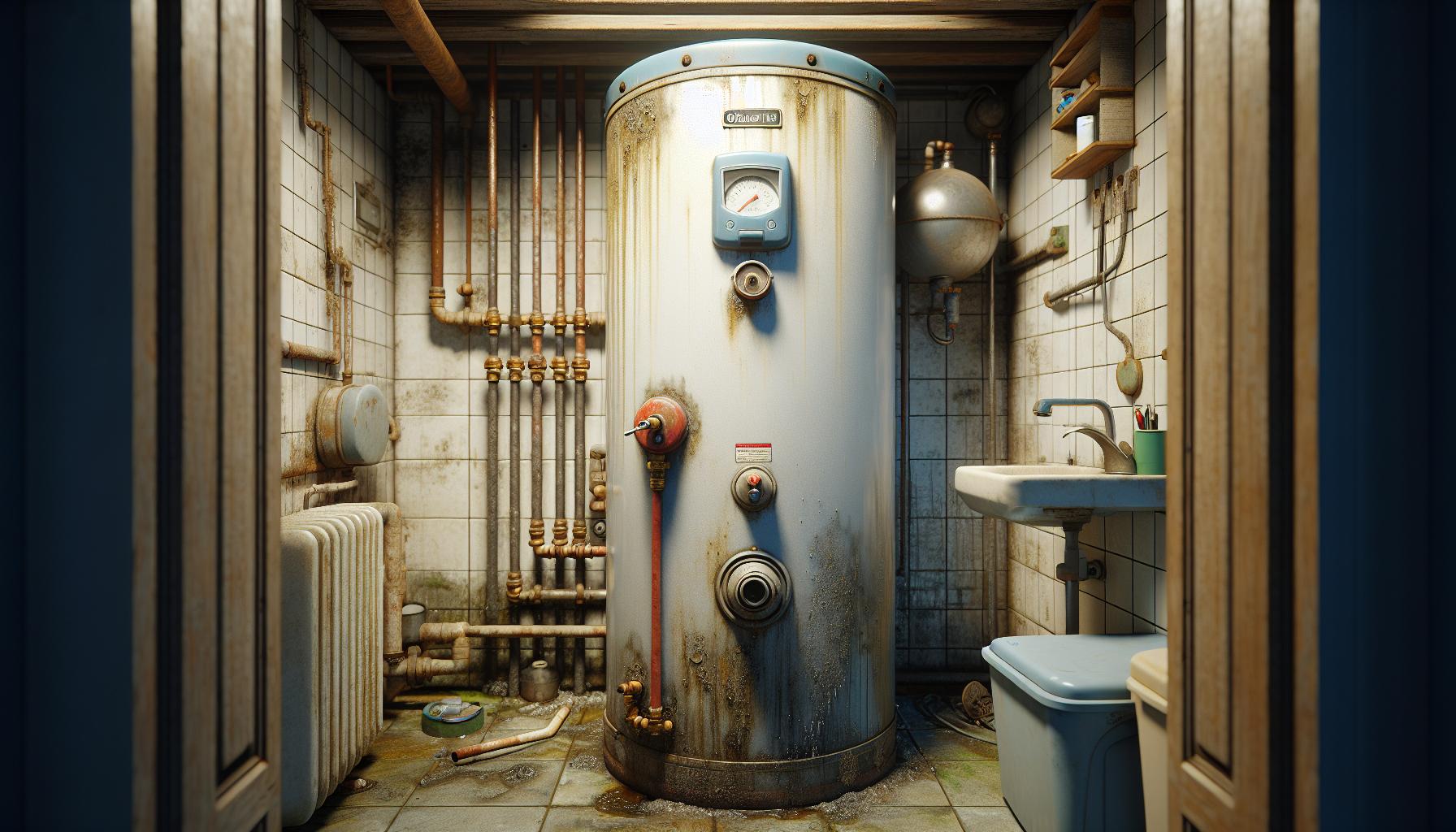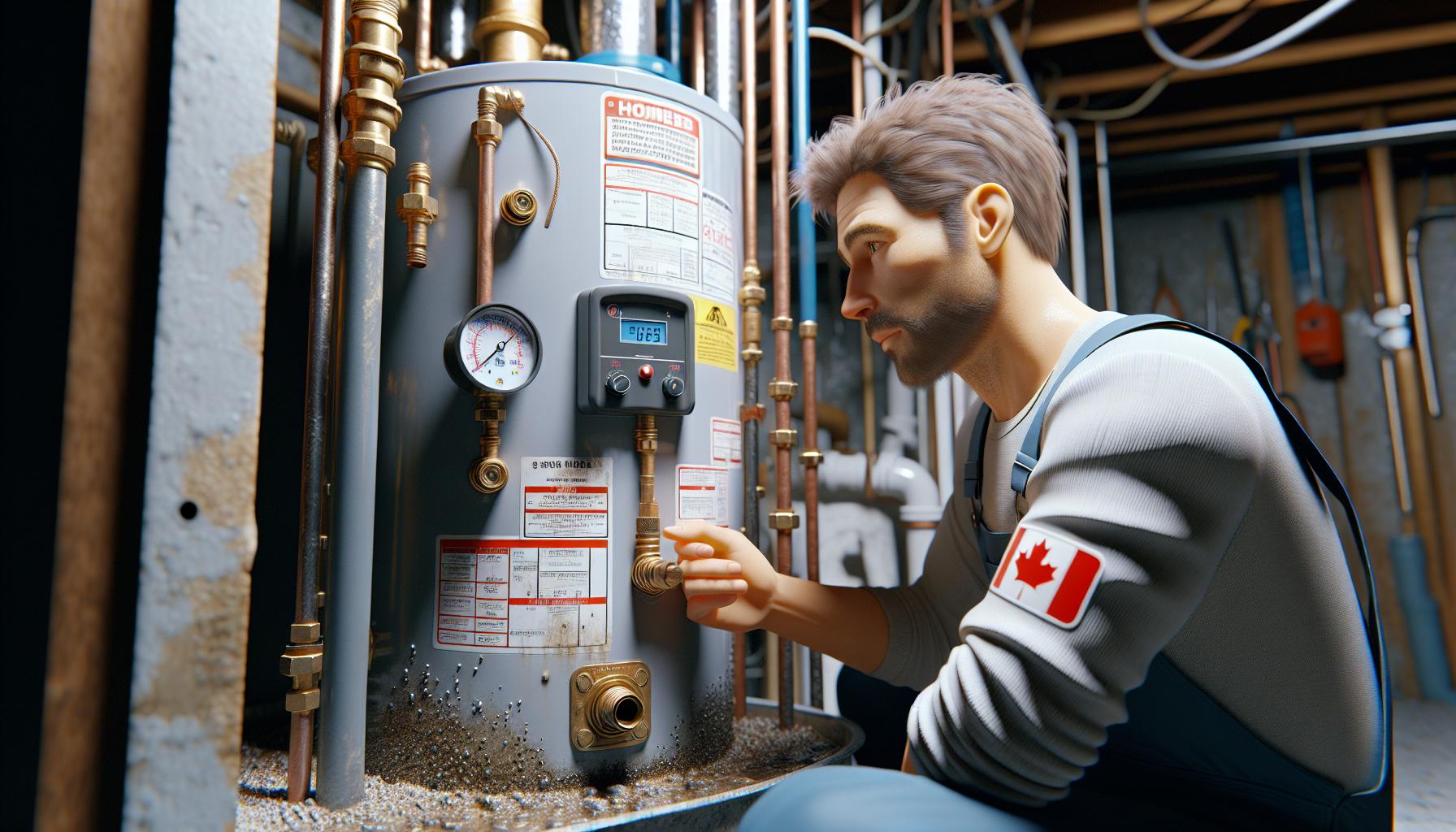Imagine your water heater as a silent sentinel, sitting quietly in your home. You might think that turning it off eliminates any risk, but is that really the case? The question of whether a water heater can explode if turned off might sound like a plot twist from a thriller, but it’s a real concern for many homeowners.
In this text, you’ll explore the mechanics and safety aspects of water heaters, understanding why even an inactive unit could pose risks. We’ll investigate into potential hazards, maintenance tips, and expert advice to keep your home safe. By the end, you’ll have a clear grasp of how to manage your water heater effectively and avoid any unexpected dangers.
Understanding Water Heater Mechanics
Water heaters operate by heating cold water using either gas or electricity. When water heats, it expands, increasing internal pressure. This pressure must be managed to prevent potential hazards.
Pressure Build-Up
Pressure build-up is the primary cause of water heater explosions. Excessive internal pressure occurs due to thermal expansion or sediment build-up. Turning off the power doesn’t immediately reduce existing pressure inside the tank.
Sediment and Temperature
Sediment accumulation and high temperatures can continue causing pressure even when the heater is off. Sediment insulating the heating elements keeps the temperature high, contributing to increased pressure.
Malfunctioning Safety Valves
The Temperature and Pressure Relief Valve (T&P valve) is designed to release excess pressure. A malfunctioning T&P valve fails to regulate pressure, increasing the risk of explosion. Regular maintenance ensures these safety mechanisms function properly.
Potential Risks When Turning Off a Water Heater

Turning off a water heater may seem like a straightforward solution to prevent explosions. But, it doesn’t eliminate the underlying risks associated with pressure build-up and gas leaks.
Common Misconceptions
Many believe turning off a water heater completely removes the risk of an explosion. In reality, pressure build-up from sediment or rust can still occur, posing a significant threat.
Actual Explosive Risks
Even when off, water heaters can accumulate pressure due to thermal expansion. Gas leaks remain dangerous due to potential ignition sources, such as pilot lights, which can lead to explosions.
Safety Measures and Precautions
To mitigate the risks associated with water heaters, even when turned off, certain safety measures and precautions are essential.
Regular Maintenance
Performing regular maintenance ensures that your water heater operates safely. Flushing the tank annually removes sediment buildup that could cause pressure issues. Check the anode rod every 1-2 years to prevent corrosion inside the tank.
Professional Inspections
Scheduling professional inspections annually can identify potential problems before they become serious. A qualified technician will check the Temperature and Pressure Relief Valve (T&P valve), gas connections, and other critical components, ensuring they function correctly.
Signs of Potential Water Heater Issues
Recognising signs of potential water heater issues is crucial for maintaining safety. Here are key indicators to watch for:
Unusual Noises
Hearing rumbling, popping, or banging sounds from your water heater? These noises often indicate sediment build-up in the tank, which can trap water and cause overheating and pressure build-up. Regular flushing can mitigate this issue.
Leaks and Water Damage
Noticing water pooling around your water heater? Leaks can signal internal corrosion or a failing T&P valve. Water damage in the surrounding area can lead to structural issues and should prompt immediate attention from a professional.
Fluctuating Water Temperature
Experiencing inconsistent water temperatures? This could point to a malfunctioning thermostat or sediment build-up affecting the heating element. Both issues can lead to inefficient operation and potential safety hazards.
Discoloured Water
Seeing rusty or brown water? Discoloured water often indicates corrosion inside the tank or failing anode rods. It’s essential to address this promptly to prevent further damage and maintain water quality.
Foul Odours
Smelling rotten eggs or sulphur? Foul odours usually come from bacterial growth inside the tank, especially if the water heater hasn’t been used for a while. Flushing the tank and possibly replacing the anode rod can resolve this issue.
Poor Hot Water Pressure
Experiencing low hot water pressure? This can result from sediment build-up clogging the pipes or an issue with the plumbing. Ensuring regular maintenance and inspection can help maintain optimal water pressure.
Frequent Cycling
Noticing your water heater turning on and off frequently? Frequent cycling could indicate a failing thermostat or issues with the electrical components. This not only reduces efficiency but can also increase the risk of overheating.
Age of the Water Heater
How old is your water heater? Most units last between 8-12 years. If your water heater is approaching or has exceeded this age range, it’s essential to monitor it closely for any signs of failure and consider replacement to avoid potential hazards.
Regular maintenance and prompt attention to these signs can help ensure your water heater operates safely and efficiently.
Expert Opinions on Water Heater Safety
Experts stress the importance of understanding the risks associated with water heaters, even when turned off. Addressing potential hazards promptly can prevent serious incidents.
Advice from Plumbers
Plumbers advise that turning off the water heater might temporarily reduce risks but doesn’t solve underlying issues. Professional service should be sought immediately to address any potential dangers.
Case Studies and Real Incidents
Several cases have shown that water heaters can still pose risks when turned off. For instance, incidents of explosions due to residual pressure and gas leaks highlight the importance of regular maintenance and professional inspections.
Conclusion
Understanding the risks associated with water heaters is crucial for your safety. Turning off the heater doesn’t eliminate the dangers of pressure build-up and gas leaks. Regular maintenance and professional inspections are essential to prevent potential hazards.
Look out for warning signs like unusual noises, leaks, and fluctuating water temperatures. Addressing these issues promptly can help ensure your water heater operates safely and efficiently.
By staying informed and proactive, you can manage your water heater effectively and avoid serious incidents. Prioritise regular upkeep and consult professionals to keep your home safe.
